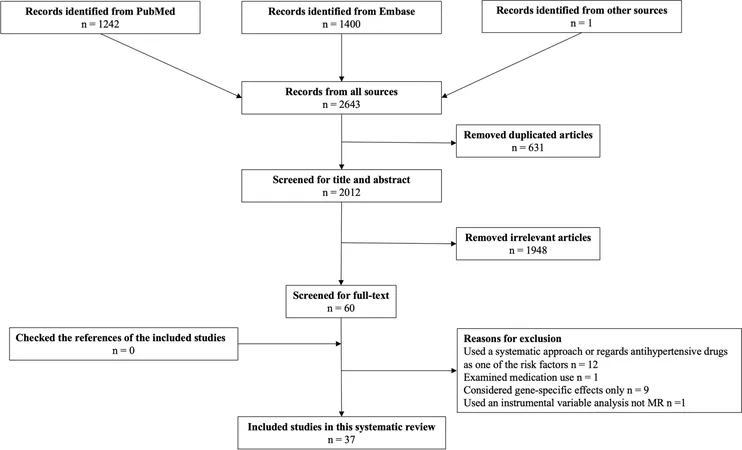
Scientists Reveal Delightful Findings from Teaching Rats to Drive Tiny Cars
2024-11-17
Author: Ming
In a fascinating twist of behavioral science, researchers have discovered that rats not only can learn to drive miniature cars but seem to genuinely enjoy it! The experiments, led by neuroscientist Kelly Lambert from the University of Richmond, have provided intriguing insights into how these little creatures navigate challenges, both physically and psychologically.
In a recent essay featured in *The Conversation*, Lambert shared her team's journey of teaching rats to maneuver their tiny vehicles. Over the years, these studies have served as a unique lens to explore how an animal's environment affects stress levels, cognitive development, and the acquisition of new skills. The research gained a significant spotlight after being featured in a Netflix documentary in 2022, but the findings continue to unfold beyond the screen.
The pandemic period, especially during the isolation of 2020, prompted Lambert to notice an interesting behavioral change in her driving-trained rats. Entering her lab one day, she observed the rats displaying signs of eagerness similar to a pet anticipating a walk. This led her to question whether the rats were simply craving their favorite treat, a Froot Loop, or if they were genuinely excited about driving.
Surprisingly, the research found that the rats exhibited a strong drive—quite literally! Lambert noted that they often jumped into their cars and excitedly "revved" the engine before the ride, underscoring their eagerness for the driving experience itself. The team posited that the anticipation of these drives provided a rewarding experience, on par with the treats they received afterward.
Moreover, the study revealed that rats who learned to wait for their rewards demonstrated superior cognitive abilities compared to those who sought instant gratification. When given the choice between a direct route to a treat by walking or a longer, more challenging path involving driving, most rats chose to drive. This behavior suggested that they found joy in both the journey and the destination.
Lambert's findings resonate beyond the realm of animal behavior, offering valuable lessons for humans as well. The delay of gratification and the pleasure derived from anticipation might be essential for mental well-being. She urges us to reconsider our fast-paced lifestyles dominated by immediate rewards, highlighting the benefits of planning and savoring the journey, both in life and learning.
In a world where instant gratification reigns, Lambert's research serves as a refreshing call to embrace patience and the joys of anticipation—whether you’re a rat behind the wheel or a human navigating the intricate roads of life.





 Brasil (PT)
Brasil (PT)
 Canada (EN)
Canada (EN)
 Chile (ES)
Chile (ES)
 España (ES)
España (ES)
 France (FR)
France (FR)
 Hong Kong (EN)
Hong Kong (EN)
 Italia (IT)
Italia (IT)
 日本 (JA)
日本 (JA)
 Magyarország (HU)
Magyarország (HU)
 Norge (NO)
Norge (NO)
 Polska (PL)
Polska (PL)
 Schweiz (DE)
Schweiz (DE)
 Singapore (EN)
Singapore (EN)
 Sverige (SV)
Sverige (SV)
 Suomi (FI)
Suomi (FI)
 Türkiye (TR)
Türkiye (TR)